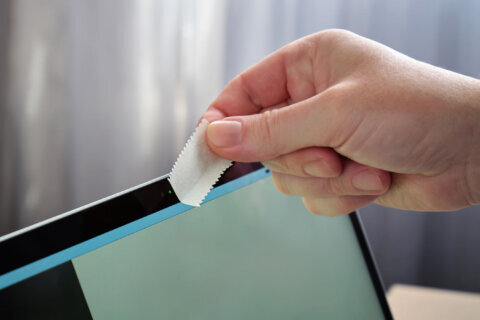Q: I’m considering a Chromebook as my travel computer; how are they with video conferencing?
A: Since their debut in 2011, Chromebooks have steadily evolved, addressing limitations that initially made them impractical for many users.
The initial focus was on the education sector, as the device provided minimal functionality when it wasn’t connected to the internet, which was a desirable limitation for students.
Today’s models can install apps and browser extensions from the Google Play Store and provide a lot of functionality for road warriors, even when it’s not online.
Its viability as a second computer depends on your needs while you’re on the road.
Chromebook advantages
There are a number of advantages over a traditional laptop, starting with the cost and weight, both of which can be significantly lower. Chromebooks can weigh as little as 2-3 pounds and start around $250.
Battery life is generally much longer than a laptop, around 8-12 hours, making them a great option on long flights or train rides when a power outlet isn’t available.
They run on Google’s Chrome OS, which boots very quickly and isn’t susceptible to common malware threats that target Windows and macOS laptops. The operating system is protected with things, such as read-only system files and a boot verification system, that make it really difficult and undesirable for those writing malware code.
The only plausible way that malware could be introduced to a Chromebook is through malicious browser extensions or apps.
Video conferencing requirements
All the major video conferencing platforms (Zoom, Skype, Meet, Teams, Webex, etc.) offer either an app or web-based options for joining a meeting via a Chromebook.
There are some specific technical specifications you’ll want to focus on before making a purchase if video conferencing is important.
I’d recommend at least eight gigabytes of RAM for improved multitasking, especially if you tend to open a lot of browser tabs while you’re in a video call. Even with the extra memory, get in the habit of closing down any unneeded items before starting a video conferencing session, just for good measure.
Lower-end Chromebooks may not have great cameras, so you’ll either want to step up in price or add an external HD webcam to make sure your image presents well.
Test yourself first
One way to get a taste of what it will be like using a Chromebook is to limit your usage on your current laptop to the Chrome browser and Google’s cloud-based tools.
This will test to see if you can access your email, word processing, spreadsheet and file storage from the browser and learn how to be productive offline.
It will also force you to find web-based alternatives for desktop apps that you rely on, if the Google Workspace tools aren’t enough.
If you can go a week or so functioning with just the browser, you’ll probably do just fine with a Chromebook as a travel computer.
If you have specific tools or apps that your company requires you to use, such as a VPN or authentication tools, check with your IT department to see if a Chromebook meets the requirements for connecting to your corporate infrastructure.
Ken Colburn is founder and CEO of Data Doctors Computer Services. Ask any tech question on Facebook or X.
Get breaking news and daily headlines delivered to your email inbox by signing up here.
© 2024 WTOP. All Rights Reserved. This website is not intended for users located within the European Economic Area.







